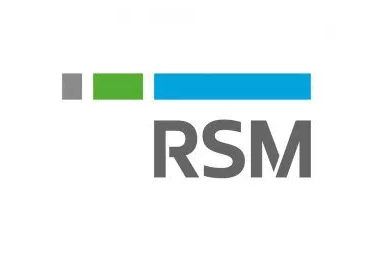
FinTech DLT Regulations
Progressive Milestone for the Jurisdiction
Gibraltar’s Financial Services (Distributed Ledger Technology Providers) Regulations 2017 (the ‘DLT Regulations’), came into force on 1 January 2018. The core principles underlying the DLT Regulations are explained here together with why DLT businesses should embrace regulation.
The DLT Regulations mark a significantly progressive milestone for the jurisdiction and are also a turning point for the crypto industry as a whole, which is largely unregulated and even banned in certain jurisdictions.
The DLT Regulations mark an initial phase in the regulation of the crypto industry in Gibraltar. It applies solely to businesses which operate in Gibraltar distributed ledger technology (DLT) that involves storing or transmitting value, for companies that are not otherwise subject to licensing obligations under other laws. Initial coin offerings (commonly called ICOs) are not caught by this legislation. However given the huge increase in popularity of this form of business, the Gibraltar Financial Services Commission (the ‘FSC’) has announced it plans to bring token sale activity within the regulatory scope within a second phase of regulation.
As to DLT, the FSC has the responsibility to issue licences under the DLT Regulations (the ‘DLT Licence’) and ensure subsequent compliance with the said regulations. The FSC encourages DLT businesses wishing to operate in Gibraltar to communicate and work with it so that the FSC can understand the underlying business and make the DLT Licence application process as smooth as possible. When determining a DLT Licence application, the FSC will adopt a discretionary approach that remains flexible by focusing on the nine core principles as listed in the DLT Regulations. The FSC states that the primary purpose of these Regulations is to create a safe environment for DLT-related businesses to operate and innovate, while simultaneously protecting consumers and safeguarding Gibraltar’s reputation as a trusted and stable global business hub. The principles-based approach was designed to provide a robust framework with an optimum level of flexibility that is required in such a fast-moving industry.
Why should DLT businesses embrace regulation?
Embracing regulation from a central body in this industry is arguably at odds with the decentralised nature of DLT. If an overly prescriptive and rigid approach had been introduced in Gibraltar it may have stifled the innovation and development of DLT businesses.
However, a regulatory framework that is sufficiently flexible to allow the continued development of the industry and the underlying technology, while also providing adequate protection for customers and maintaining, if not improving, the reputation and appeal of Gibraltar as a financial services jurisdiction, will be beneficial for all stakeholders.
The FSC’s approach and the DLT Regulations should therefore dispel concerns that Gibraltar’s regulatory standpoint may be overly restrictive and consequently detrimental to the development of the crypto industry. In principle, Gibraltar’s well-constructed regulatory framework should provide the following benefits:
- Only reputable DLT providers will obtain a DLT Licence;
- Consumers transacting with a DLT licence holder will have the comfort of knowing that the business they are dealing with is operating in a regulated environment where the FSC is protecting the interests of the consumer;
- Consumers transacting with a DLT licence holder will be informed and protected;
- The crypto industry will become more secure and transparent, which are some of the underlying qualities of blockchain technology;
- The reputation of the crypto industry and the quality of service provided by DLT businesses will improve;
- The aforementioned benefits are already attracting big players in the crypto industry to Gibraltar but also large multinational companies from traditional industries who are expanding their offering by utilising blockchain technology; and
- The involvement of large multinational companies with vast amounts of capital may lead to further innovation.
We are optimistic that the combination of the DLT Regulations and the open approach adopted by the FSC will encourage the crypto industry to thrive and allow Gibraltar to become the ‘gold standard’ jurisdiction for crypto businesses, in the same way it has been for the online gaming sector.
Amcham News
- Thanksgiving Gala Dinner 2025, Sponsored by GAM
- AmCham Thanksgiving Gala Dinner
- 4th of July BBQ at the Iconic Garrison Library
- Malte Lohan Appointed as CEO of AmCham EU
- Welcome to President-elect Donald J. Trump
- Who Will Be The Next U.S. President?
- AmCham EU Transatlantic Conference, Brussels
- Congressional Dinner with keynote speaker Congresswoman Loretta Sanchez
- A Year in Review 2022-2023
- A Year in Review 2021-2022
- July 4th- Independence Day, Alameda Gardens
- 4th of July at The Garrison Library Gardens
- Successful Trade Mission to Raleigh, North Carolina
- Roundtable on June 3rd with the EDPNC (Economic Development Partnership North Carolina).
- AmCham Meets with SRG Europe






























